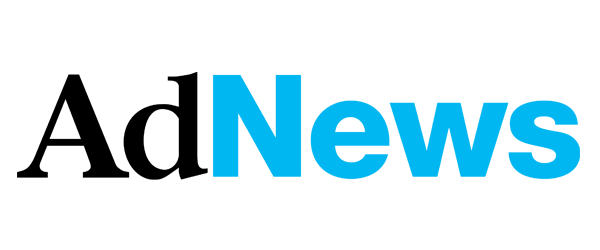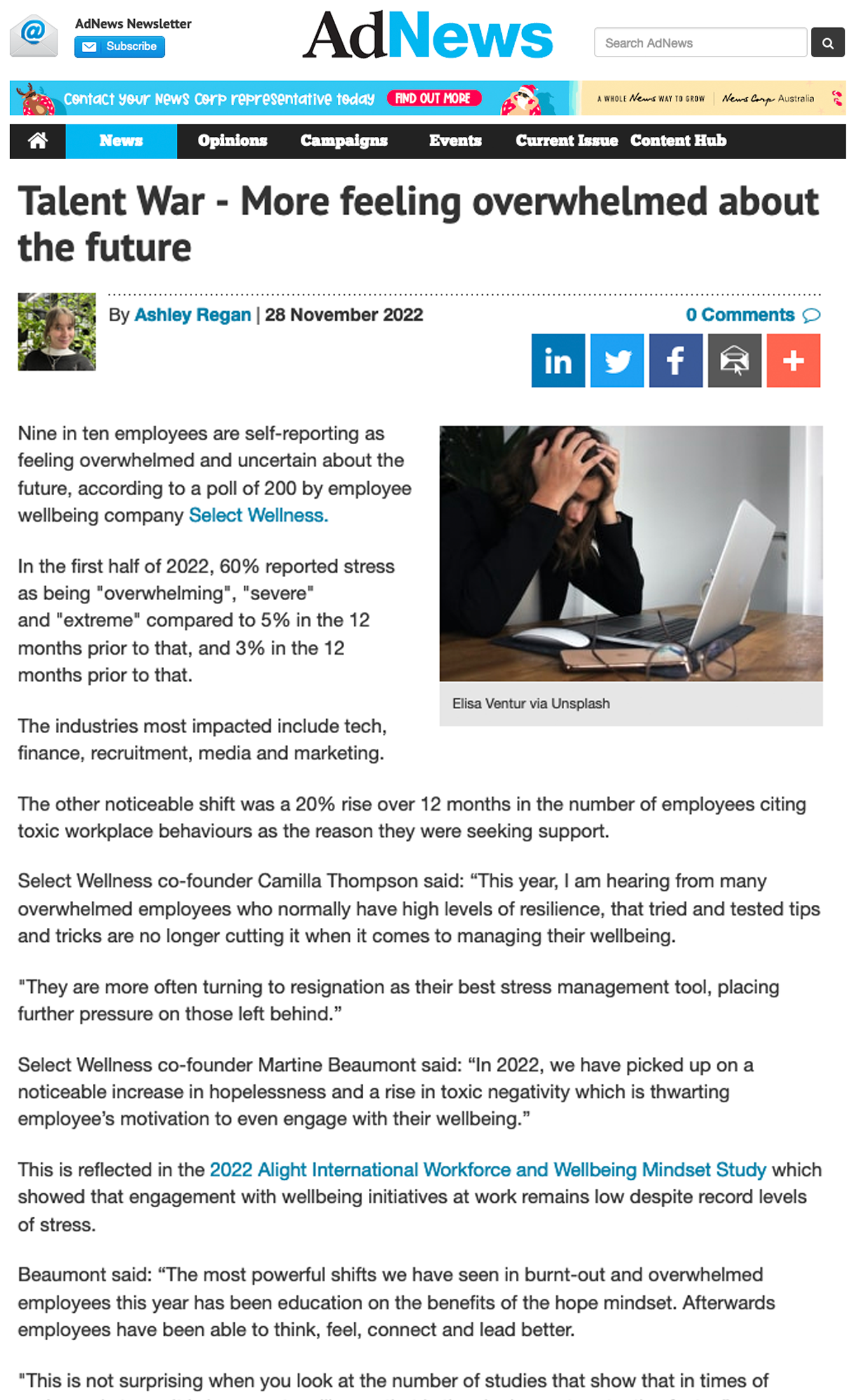Talent War – More feeling overwhelmed about the future
By Ashley Regan
ADNews
Nine in ten employees are self-reporting as feeling overwhelmed and uncertain about the future, according to a poll of 200 by employee wellbeing company Select Wellness.
In the first half of 2022, 60% reported stress as being “overwhelming”, “severe” and “extreme” compared to 5% in the 12 months prior to that, and 3% in the 12 months prior to that.
The industries most impacted include tech, finance, recruitment, media and marketing.
The other noticeable shift was a 20% rise over 12 months in the number of employees citing toxic workplace behaviours as the reason they were seeking support.
Select Wellness co-founder Camilla Thompson said:
“This year, I am hearing from many overwhelmed employees who normally have high levels of resilience, that tried and tested tips and tricks are no longer cutting it when it comes to managing their wellbeing.
“They are more often turning to resignation as their best stress management tool, placing further pressure on those left behind.”
Select Wellness co-founder Martine Beaumont said:
“In 2022, we have picked up on a noticeable increase in hopelessness and a rise in toxic negativity which is thwarting employee’s motivation to even engage with their wellbeing.”
This is reflected in the 2022 Alight International Workforce and Wellbeing Mindset Study which showed that engagement with wellbeing initiatives at work remains low despite record levels of stress.
Beaumont said:
“The most powerful shifts we have seen in burnt-out and overwhelmed employees this year has been education on the benefits of the hope mindset. Afterwards employees have been able to think, feel, connect and lead better.
“This is not surprising when you look at the number of studies that show that in times of prolonged stress, it is hope, not resilience, that is the single most protective factor.”
A hope mindset reframes uncertainty, as holding just as much potential for positive outcomes, as negative, and asks our minds to focus on what we can control, rather than what we are powerless to change.
Thompson said:
“In the early stages of the pandemic we were seeing a lot of toxic positivity in workplaces with leaders insisting with minimal evidence and plans, that everything was going to be okay.
“Now the pendulum has swung to toxic negativity, with leaders and their teams focussing more and more on what is wrong, and ignoring or minimising the potential for positive outcomes and paths to get there.
“We believe this is a big factor contributing to the 62% of Australian workers currently struggling with symptoms of burnout.”
A recent McKinsey & Company study also shows the existing gap between male and female leader burnout has doubled from 2020 to 2021. Contributing to this, Select Wellness believes is the heavier emotional load that women commonly carry at home and work.
Thompson said:
“Employees in general, but particularly women need to be equipped with strategies to lighten their emotional load right now and a mindset that helps them to balance caring for self with caring for others.”
With the federal and state government recently introducing new regulations that explicitly target the risk of harm to employees from psychosocial hazards, Australian employers now have a legal obligation to identify individuals and cohorts more at risk and eliminate or minimise these risks.
Examples of psychosocial hazards identified by Safe Work Australia include job demands, poor support, inadequate reward and recognition, bullying and harassment, and remote working.
Beaumont said:
“To be compliant, employers need to be looking at science-backed wellbeing interventions that target exposure to long-term stress and today’s challenges, rather than just relying on resilience workshops designed for a different decade.”


